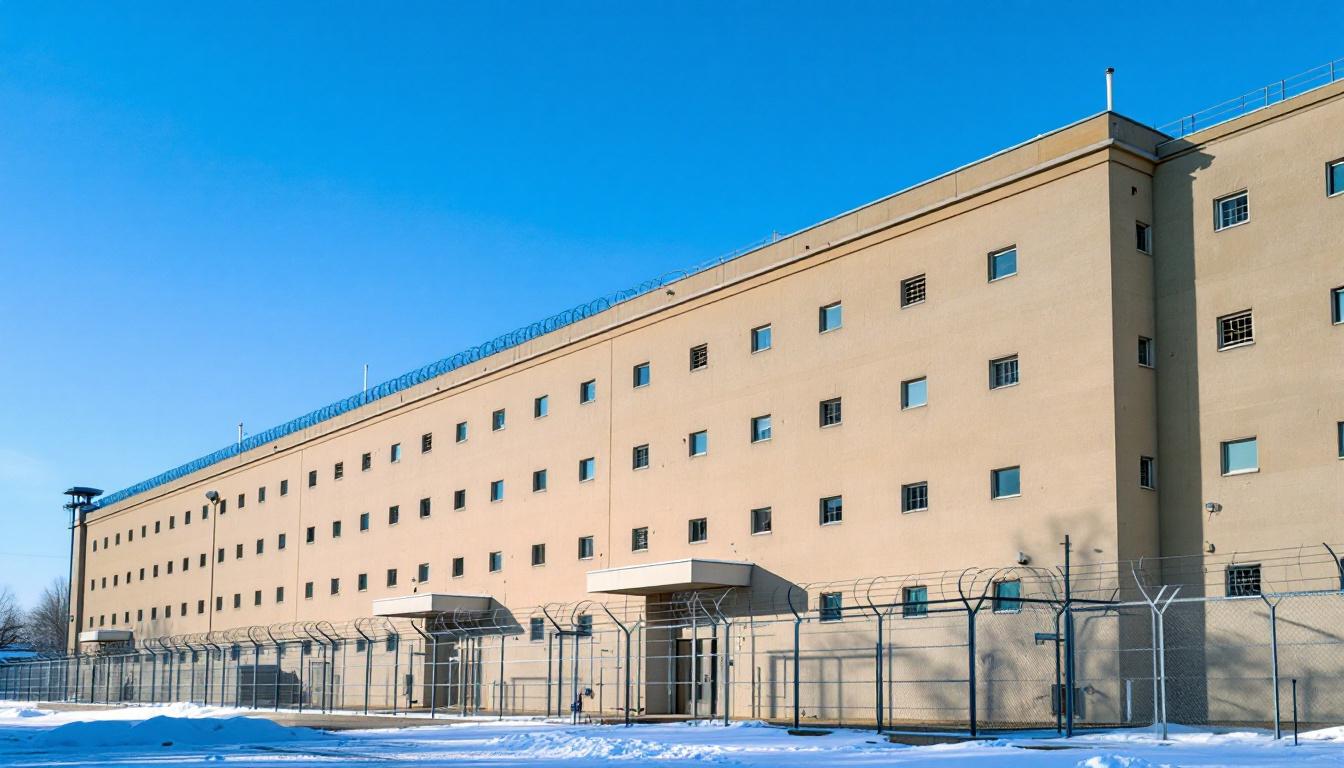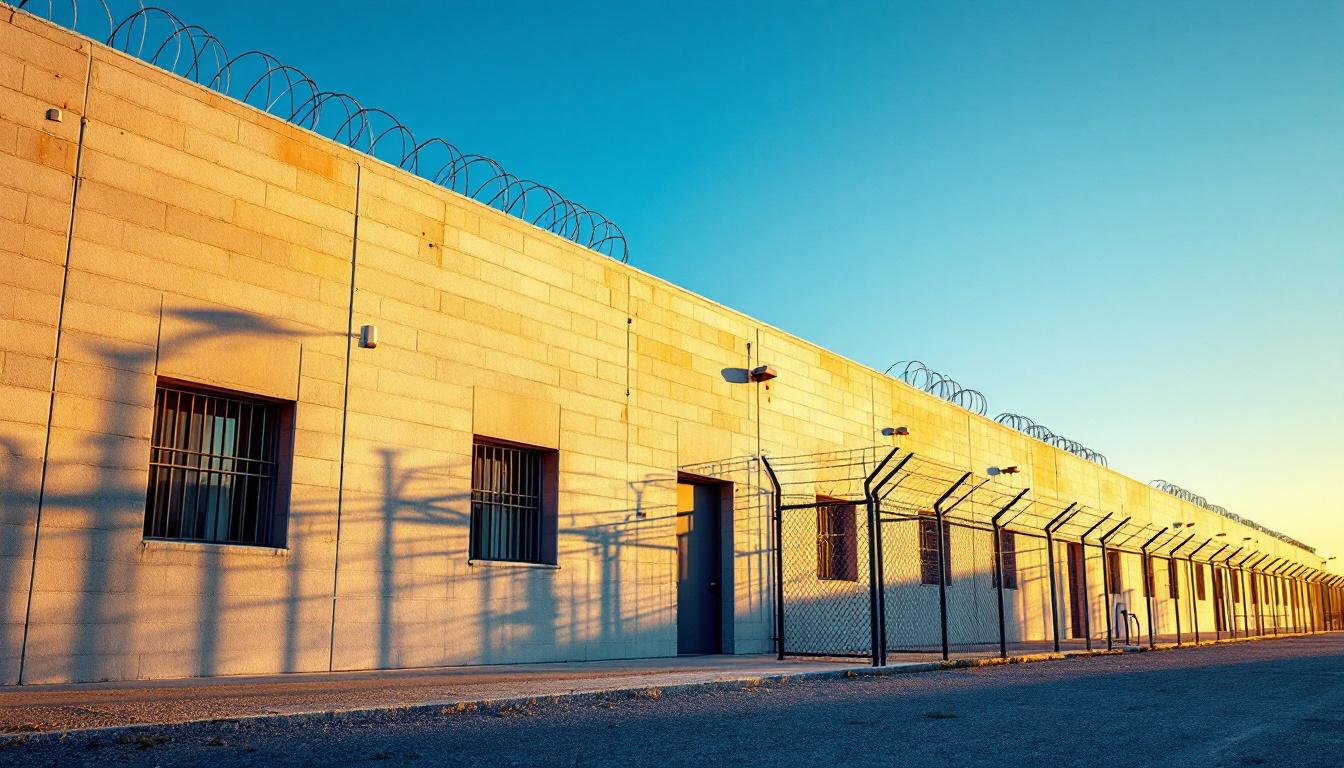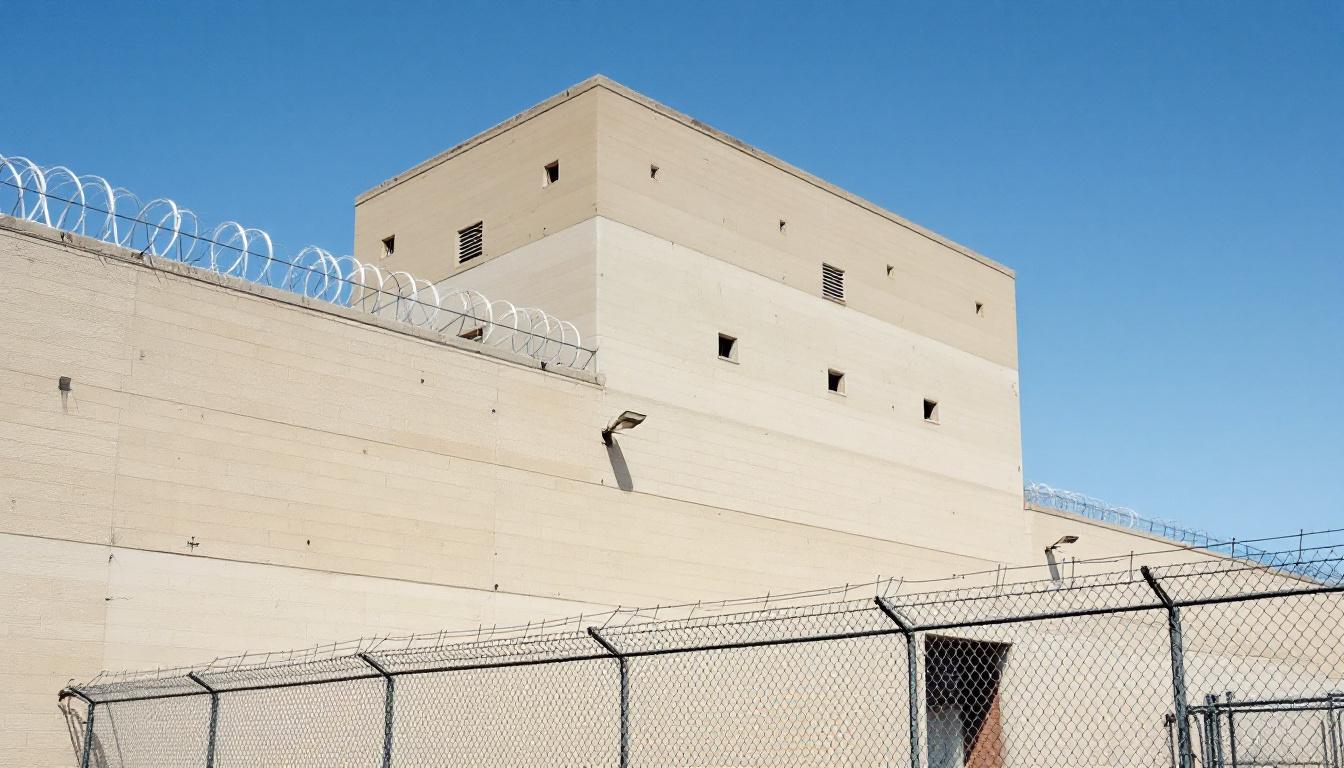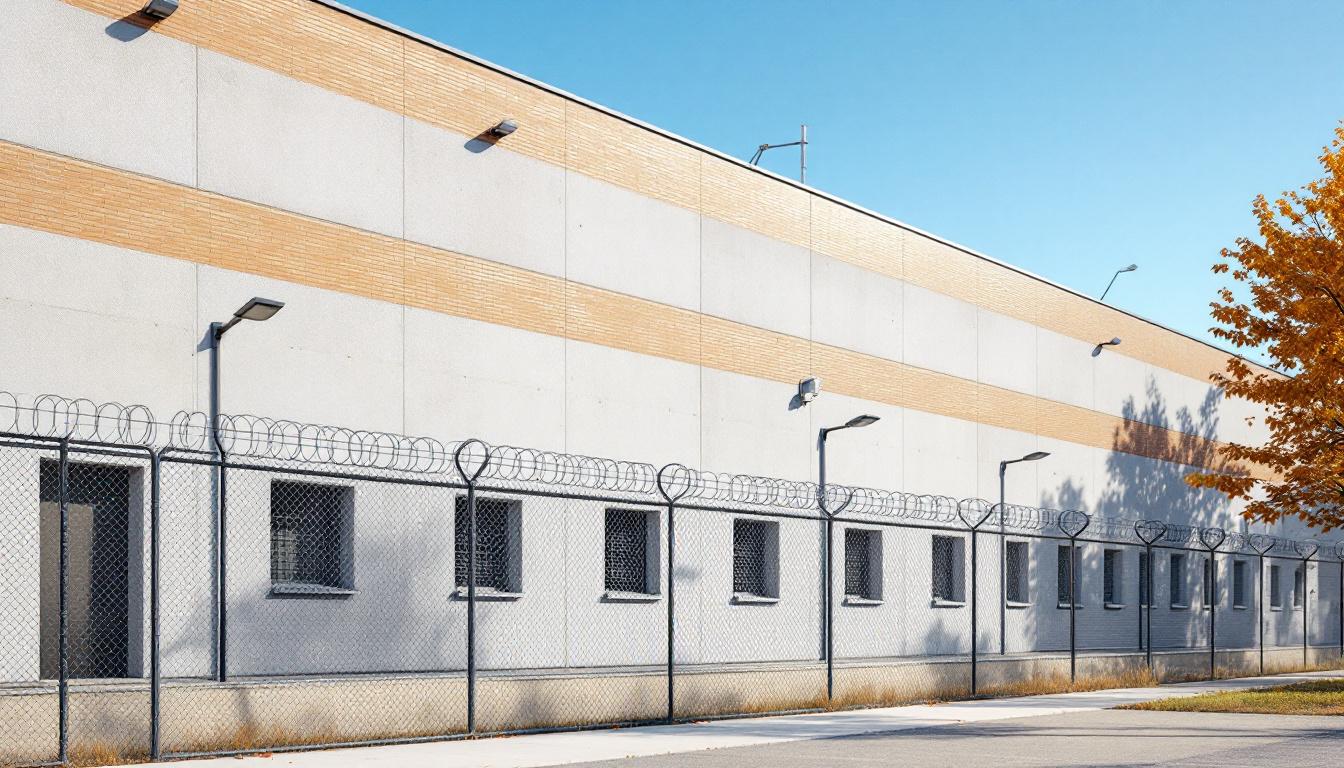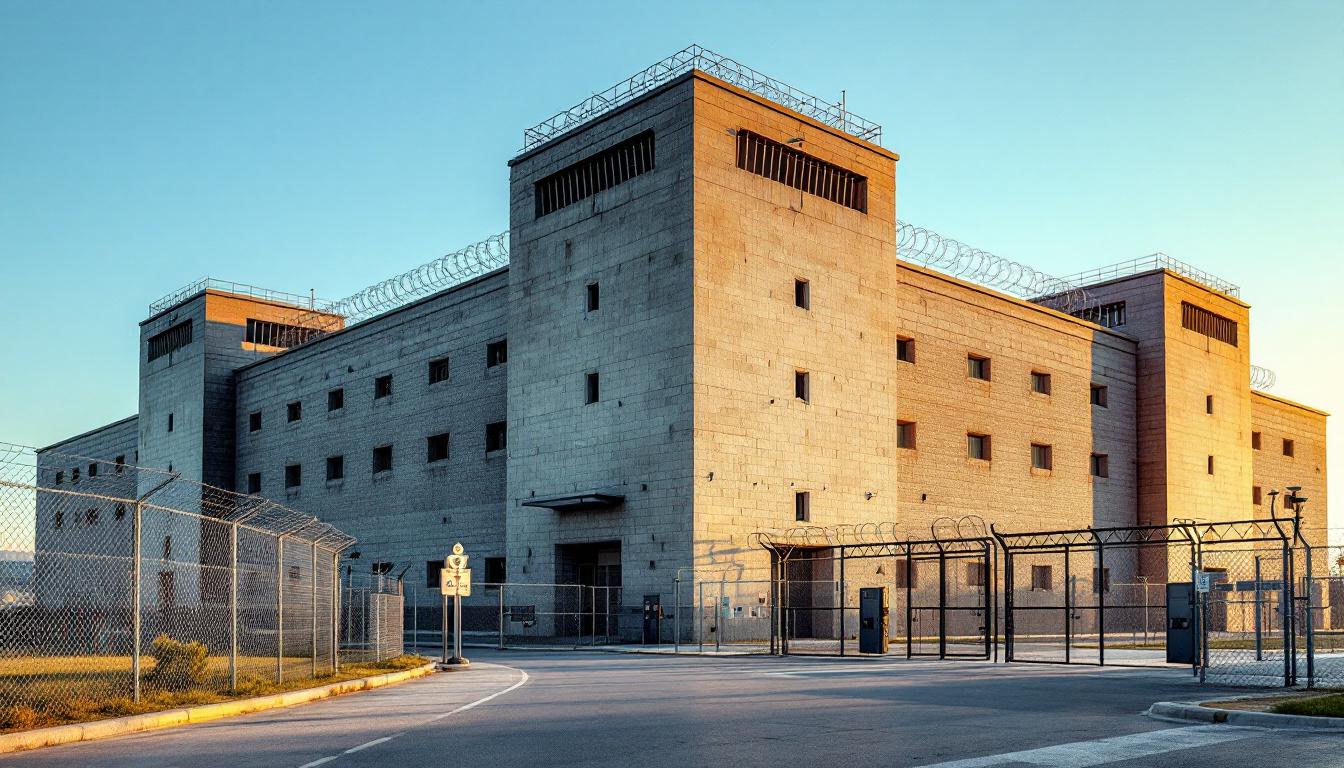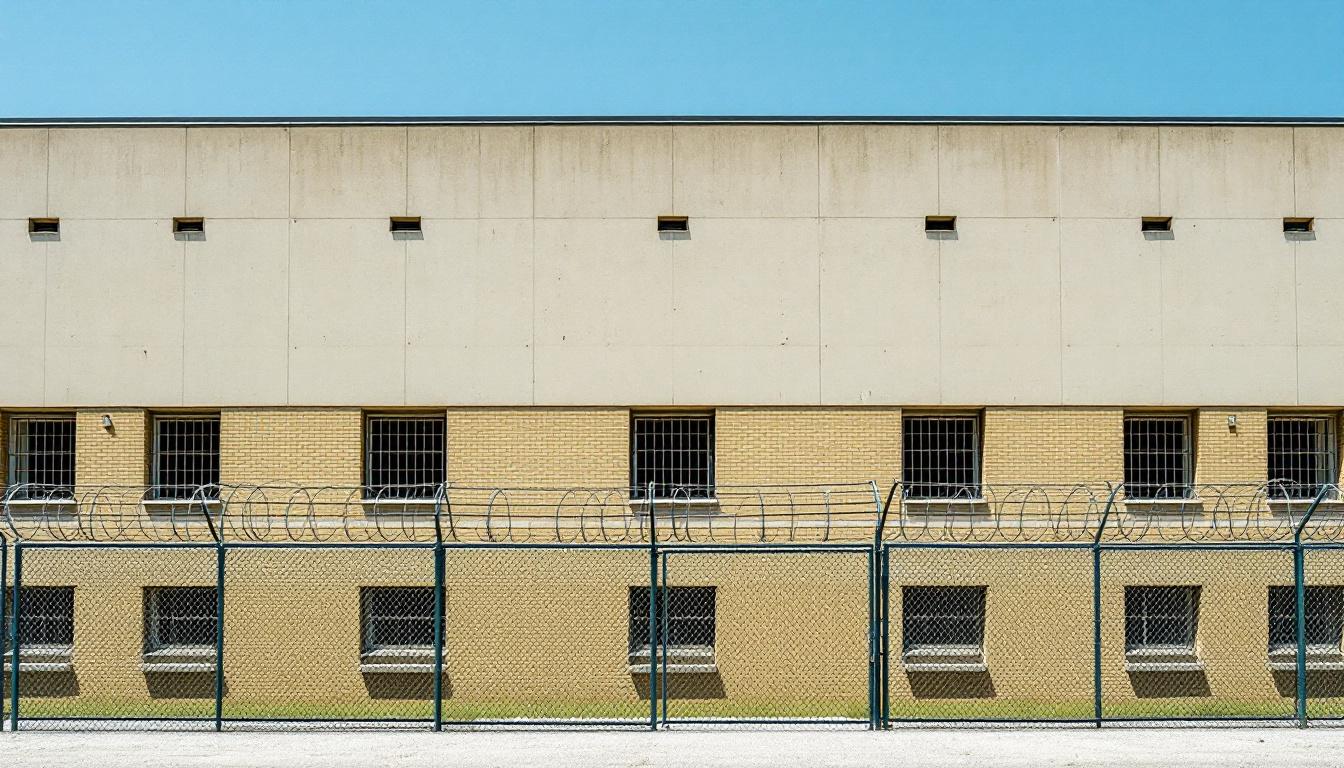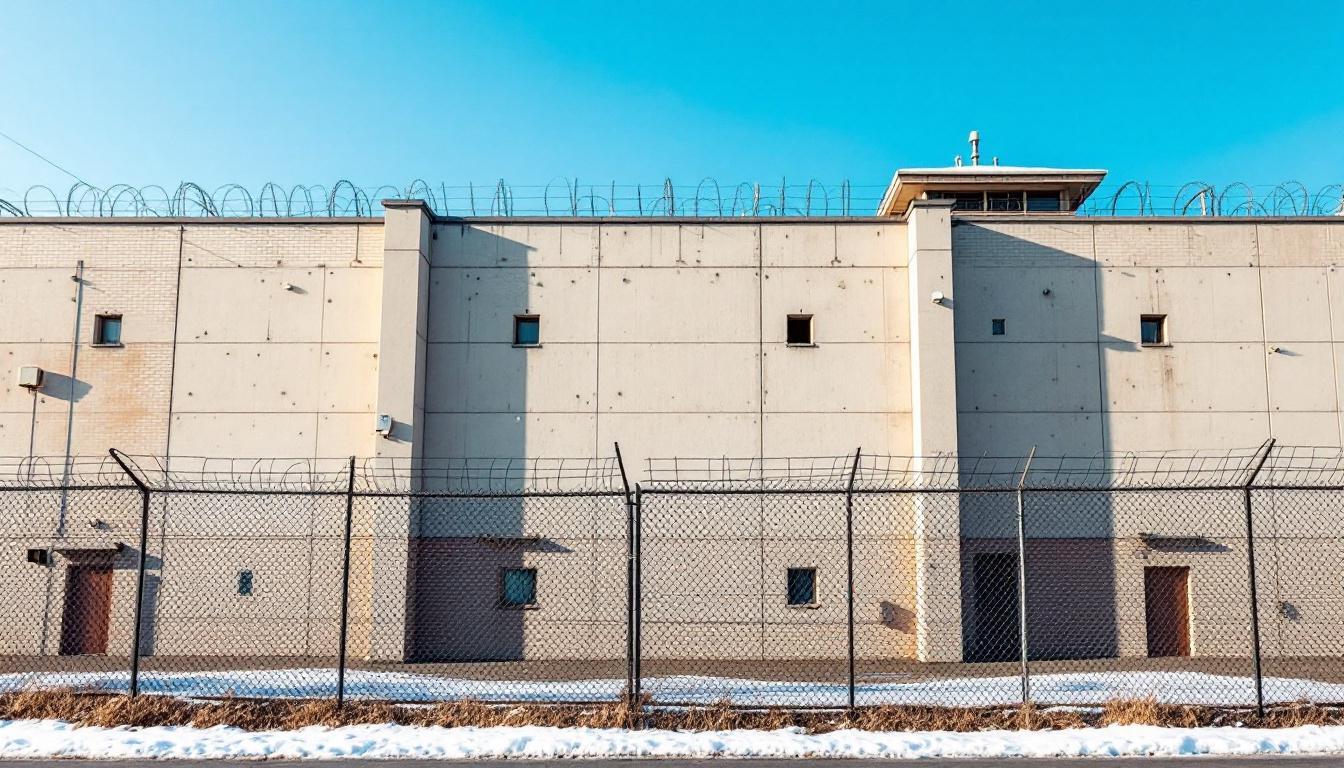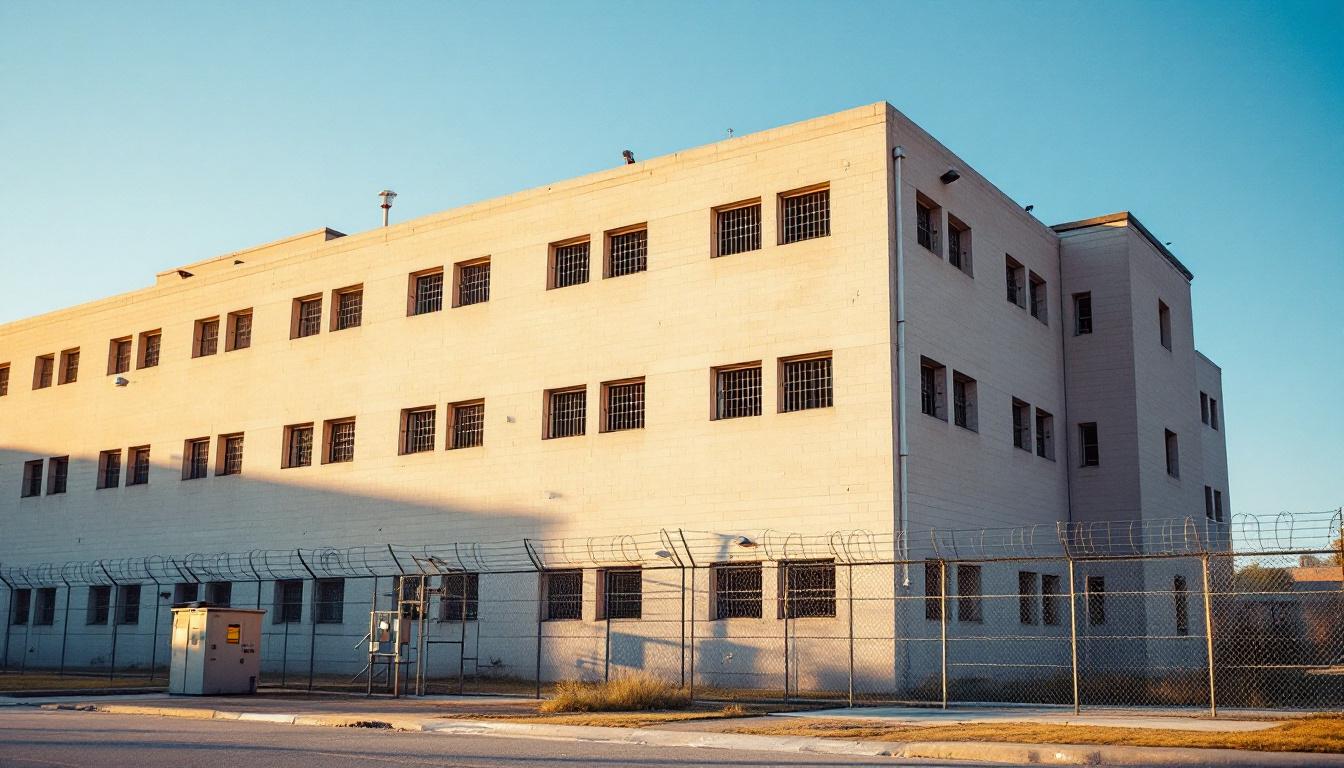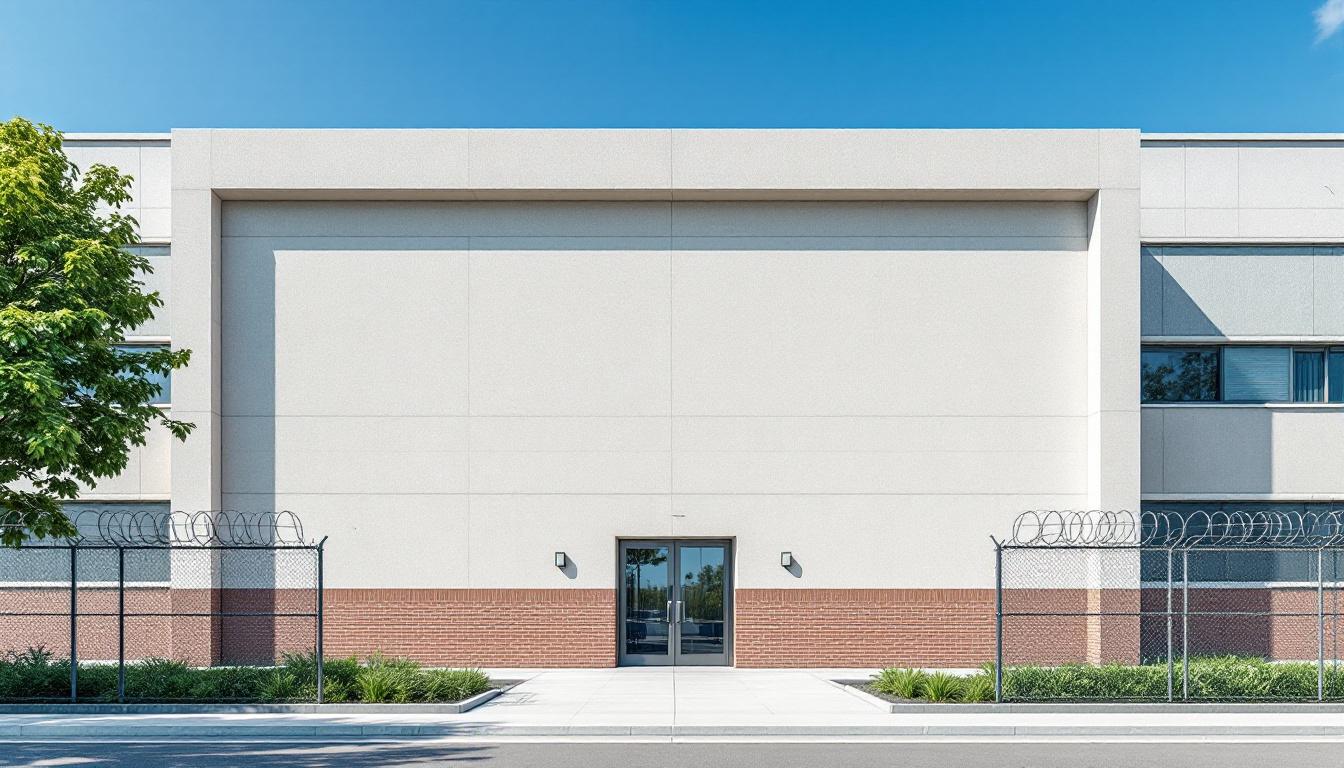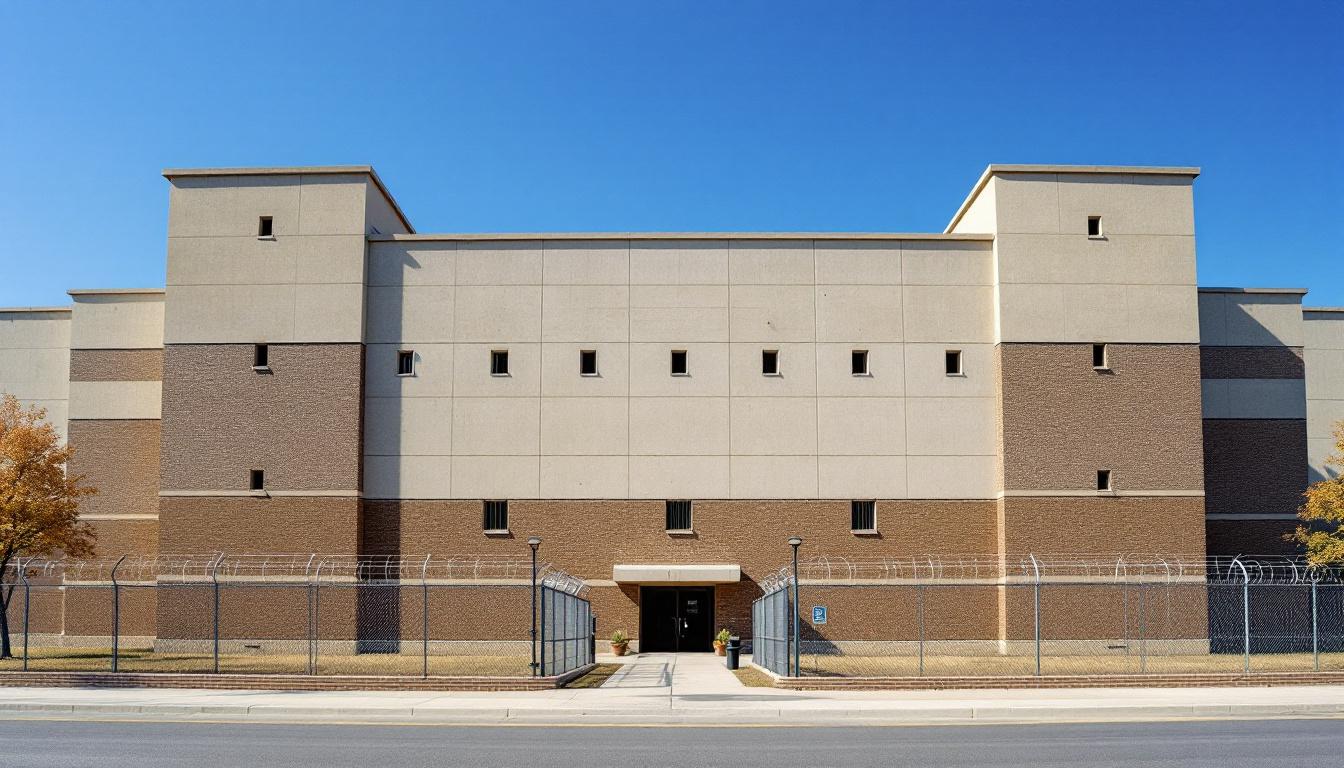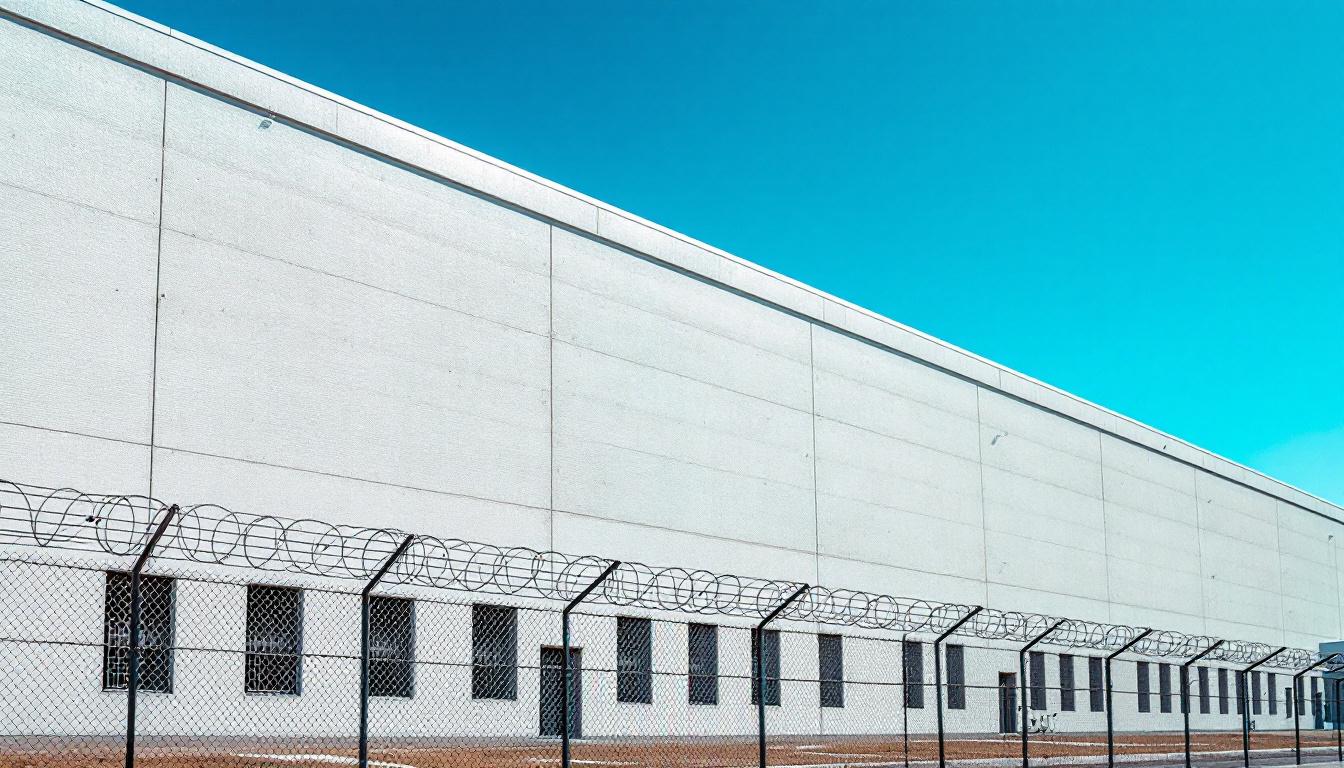
Quick Navigation
How to contact an inmate at Bartow County Sheriff's Office
This comprehensive guide will walk you through how to connect with an inmate at Bartow County Sheriff's Office. Follow the steps below to find an inmate and send letters and photos:
- Search for the inmate using our search tool below
- Create your account or log in to Penmate
- Write your message (up to 6,000 characters)
- Send instantly - inmates receive printed copies daily
Find an Inmate
Search for an inmate to start communicating today
Tip: You can search by first name, last name, or inmate ID number
To contact a person at Bartow County Sheriff's Office start by searching for the person on the official facility website. Perform a search by following these steps:
- Step 1: Enter their first name and last name into the search form and click "Search"
- Step 2: Locate their inmate record
- Step 3: Write down their Inmate ID and any housing information provided
Important! Be sure to enter the person's full name. Nicknames should not be used.
How to Send Messages to Inmates

You can use your phone or computer to send emails, letters, and photos to an inmate. Messages are sent electronically to inmate tablets or kiosks at the facility. If you would like to send a message, start by searching for an inmate at Bartow County Sheriff's Office.
Sending Photos and Postcards

A great way to send love and support to a loved one at Bartow County Sheriff's Office is to send photos and postcards. It only takes a few minutes to send photos from your phone and it makes a huge difference. You can also mail postcards with words of support and inspiration, or design your own postcard for special moments like birthdays and holidays.
Important! Be sure not to send any explicit photos or they may not be approved by the facility. You can also use a photo printing app like Penmate to make sure your photos are printed at the correct size (4x6 or 3x5) and are mailed according to the rules and regulations of Bartow County Sheriff's Office.
Frequently asked questions about Bartow County Sheriff's Office
-
How long does it take to deliver a message?
If you're sending an email message your letter is usually delivered within 24-48 hours. For messages sent via mail you should expect delivery within 3-7 days. All messages will need be approved by Bartow County Sheriff's Office.
-
How much does it cost to send a message to Bartow County Sheriff's Office?
You can send a message free using your phone or mail a message via USPS for the price of a $0.60 stamp and envelope. You can also purchase credits or e-stamps from services starting at $1.99.
-
What services can I use to contact an inmate at Bartow County Sheriff's Office?
Penmate
You can use Penmate to send letters and photos to an inmate from your phone. It's an easy way to stay in touch during your loved one's incarceration. Use the inmate locator to find an inmate's location and contact information, then you can send messages within a few minutes.
Securus messaging
Securus may be another option for communicating with an inmate at Bartow County Sheriff's Office. You can create a friends and family account and purchase credits to send messages. All messages will be reviewed and must be approved by the facility.
JPay
Some county jails and state prisons may support sending messages with JPay. You must register an account with the system, find your loved one, and purchase stamps to send messages. For some locations you can also attach photos.
Smart Jail Mail
You may also check if Smart Jail Mail is available at Bartow County Sheriff's Office. Smart Jail Mail is operated by Smart Communications and has contracted with some state and county jails. After purchasing credits, your messages and photos are sent to the facility, printed out, and then handed out to your loved one.
-
What is the mailing address of Bartow County Sheriff's Office?
Mailing address:
Bartow County Sheriff's Office
104 Zena Dr
Cartersville, GA 30121
Phone: (770) 382-5050Business hours:
- Monday: 8:00 AM – 5:00 PM
- Tuesday: 8:00 AM – 5:00 PM
- Wednesday: 8:00 AM – 5:00 PM
- Thursday: 8:00 AM – 5:00 PM
- Friday: 8:00 AM – 5:00 PM
- Saturday: Closed
- Sunday: Closed
-
What are the visiting hours at Bartow County Sheriff's Office?
Visiting hours at Bartow County Sheriff's Office vary by housing unit and security level. Generally, visits are scheduled on weekends and holidays, with some facilities offering weekday visits. Contact the facility directly at (770) 382-5050 or check their website for the current visiting schedule. Visits typically last 30-60 minutes and must be scheduled in advance.
-
What items are prohibited when sending mail to Bartow County Sheriff's Office?
Prohibited items typically include: cash, personal checks, stamps, stickers, glitter, glue, tape, staples, paperclips, polaroid photos, musical or blank greeting cards, hardcover books, magazines with staples, and any items containing metal or electronics. Only send letters on plain white paper with blue or black ink. Photos must be printed on regular photo paper (no Polaroids). Always check with Bartow County Sheriff's Office for their specific mail policies.
-
How do I send money to an inmate at Bartow County Sheriff's Office?
You can send money to an inmate at Bartow County Sheriff's Office through several methods: 1) Online using JPay, Access Corrections, or the facility's approved vendor, 2) Money orders mailed directly to the facility with the inmate's name and ID number, 3) Kiosks located in the facility lobby, or 4) Over the phone using a credit or debit card. Fees vary by method, typically ranging from $2.95 to $11.95 per transaction.
-
Can I schedule a video visit with an inmate at Bartow County Sheriff's Office?
Many facilities now offer video visitation as an alternative to in-person visits. At Bartow County Sheriff's Office, video visits may be available through services like Penmate, Securus Video Connect, GTL, or ICSolutions. Video visits typically cost $10-20 for 20-30 minutes and must be scheduled in advance. You'll need a computer or smartphone with a camera and reliable internet connection. Contact the facility for their specific video visitation policies and approved vendors.
-
What identification do I need to visit an inmate at Bartow County Sheriff's Office?
All visitors must present valid government-issued photo identification such as a driver's license, state ID, passport, or military ID. Minors must be accompanied by a parent or legal guardian who can provide the minor's birth certificate. Some facilities require visitors to be on the inmate's approved visitation list, which may require a background check. Contact Bartow County Sheriff's Office for specific ID requirements and visitor approval procedures.
-
How can I find out an inmate's release date?
To find an inmate's release date at Bartow County Sheriff's Office, you can: 1) Use the online inmate search tool if available, 2) Call the facility's records department, 3) Contact the inmate's case manager or counselor, or 4) Have the inmate provide this information during a call or visit. For privacy reasons, some facilities only release this information to immediate family members.
Facility Overview
Contact Information
Bartow County Sheriff's Office104 Zena Dr
Cartersville, GA 30121
Phone: (770) 382-5050
Official Website
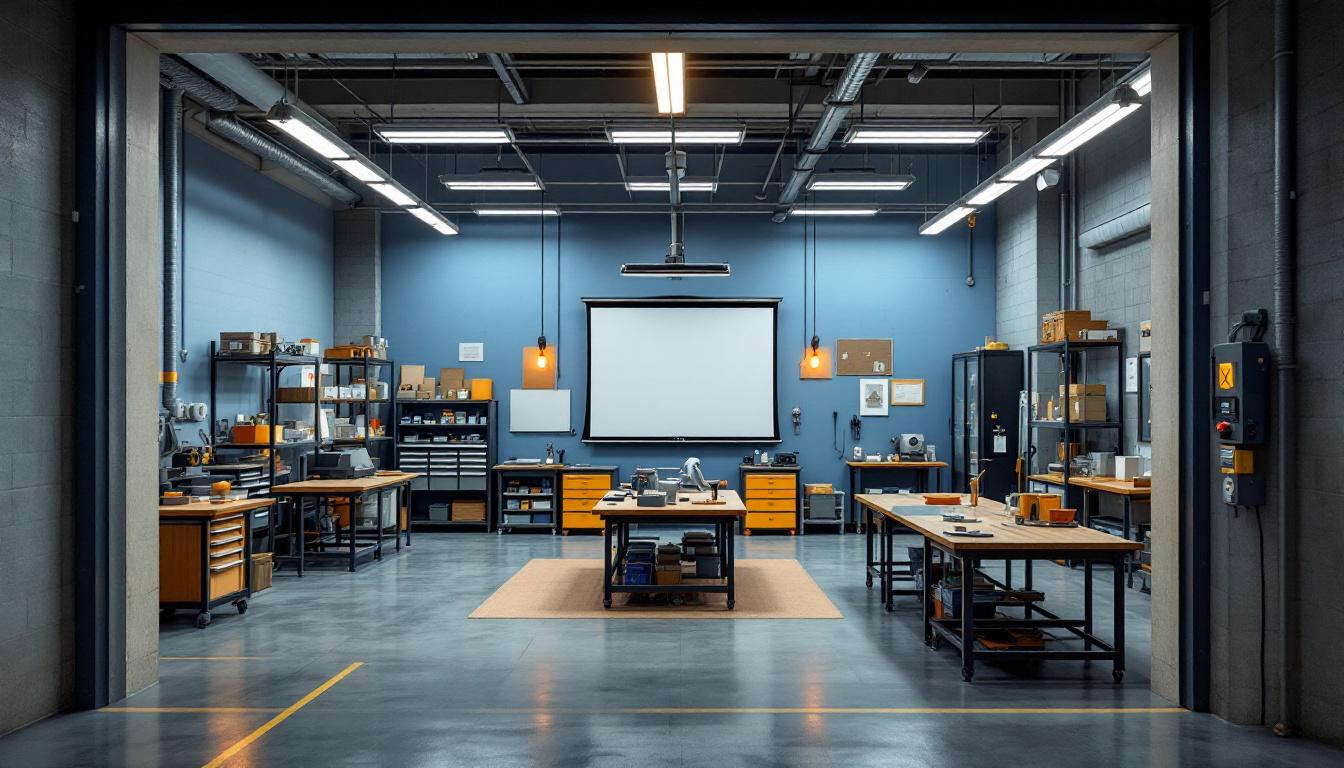
About Bartow County Sheriff's Office
Correctional facilities throughout Georgia's metropolitan regions serve as critical components in the state's justice system, with institutions like the Bartow County Sheriff's Office, GA playing an essential role in community safety and offender rehabilitation within the greater Atlanta area. This GA correctional facility operates as part of the broader network designed to address criminal justice needs while maintaining focus on eventual community reintegration for those in custody.
The facility typically provides the population services that encompass both secure detention and various rehabilitative programming opportunities. Located within reach of Atlanta's extensive metropolitan region, the institution generally offers educational initiatives, vocational training options, and substance abuse counseling that may help prepare individuals for successful reentry into their communities. Mental health services and medical care are commonly integrated into daily operations, while family visitation programs often maintain crucial connections between incarcerated individuals and their loved ones throughout the Atlanta area.
Community partnerships frequently enhance the facility's rehabilitation efforts, with local organizations sometimes providing additional support services and reentry assistance. The correctional facility's approach to programming typically emphasizes skill development and behavioral modification, recognizing that successful outcomes depend on comprehensive preparation for life after release. Through these various initiatives, the institution works toward reducing recidivism while supporting both public safety and individual transformation within Georgia's correctional system.
Programs & Services
Through comprehensive service delivery, the Bartow County Sheriff's Office demonstrates its commitment to fostering positive transformation among the population through carefully structured programs that address both immediate needs and long-term reintegration goals. The facility's approach emphasizes holistic development, recognizing that successful community reentry requires addressing multiple facets of an individual's circumstances. These programs typically operate under a philosophy that views incarceration as an opportunity for growth and skill development, rather than merely punitive detention.
Educational programs form the cornerstone of rehabilitative efforts, often including literacy instruction, GED preparation, and continuing education opportunities that enable participants to advance their academic credentials. Furthermore, vocational training programs may supply hands-on experience in various trades and technical skills, preparing the population with marketable abilities that enhance employment prospects upon release. These educational and vocational initiatives typically emphasize practical application and real-world relevance, ensuring that participants develop competencies directly applicable to workforce reintegration.
The facility's support services encompass a broad spectrum of wellness-focused programs designed to address the diverse needs of the population. Faith-based services often provide spiritual guidance and community connection, while conflict resolution programs may supply participants with essential interpersonal skills for managing disputes constructively. Additionally, wellness programs typically address physical and mental health concerns, and practical services such as laundry facilities help maintain dignity and hygiene standards. These supportive offerings work synergistically to create an environment where the population can develop the tools necessary for successful family reunification and community reintegration.
Daily Life & Visitation
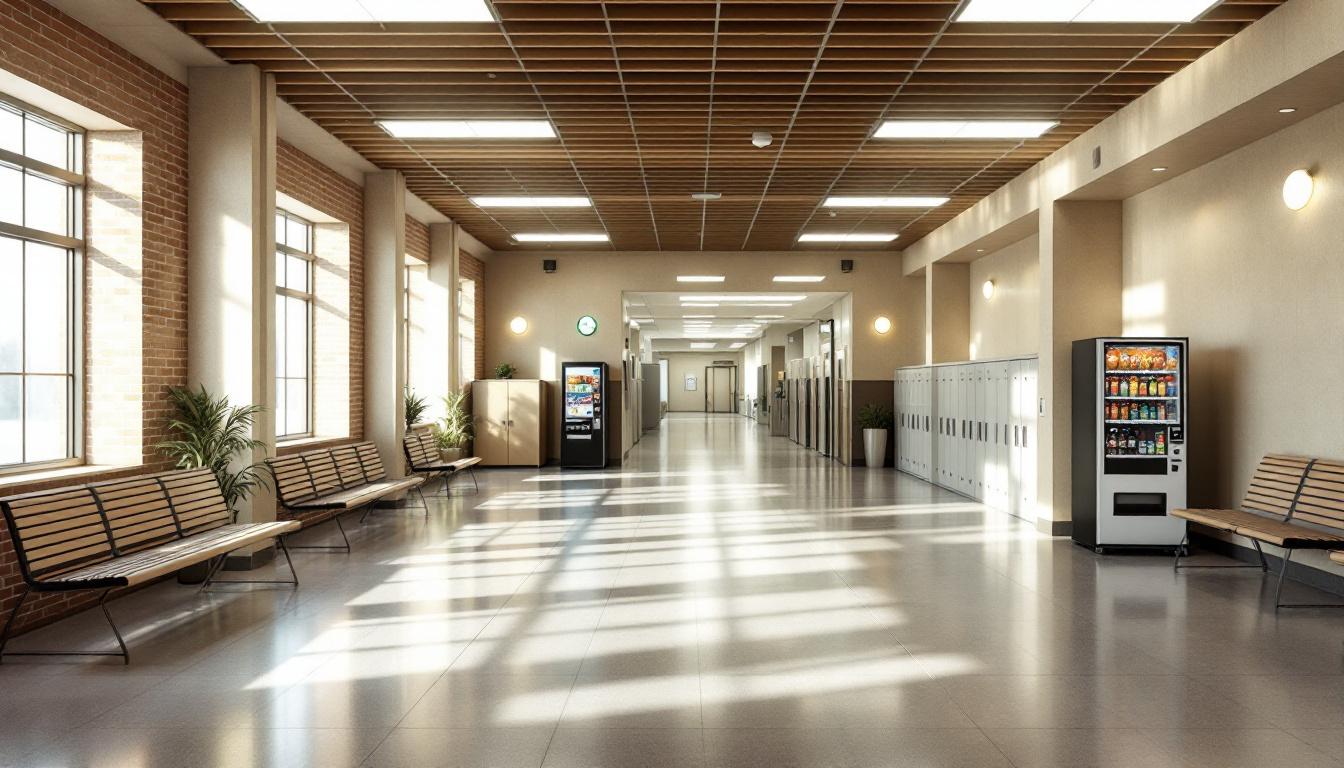
The carefully orchestrated administrative framework at the Bartow County Sheriff's Office detention facility shapes every aspect of how the population experiences their daily environment, with structured protocols that actively govern movement, activities, and interactions throughout each day. At present, the facility operates under a systematic approach that divides the day into clearly defined segments, with the population actively participating in scheduled counts, meal services, and supervised activities that supply both routine and purpose to their time in custody. The organizational hierarchy, from correctional officers to supervisory staff, typically maintains consistent oversight of all operations, ensuring that daily schedules generally flow according to established institutional procedures.
Furthermore, the housing arrangements reflect the facility's commitment to maintaining order through strategic population management, with the population typically housed in dormitory-style units or individual cells depending on classification levels and security requirements. Living accommodations usually include basic furnishings such as bunks, storage areas for personal property, and shared common spaces where appropriate, although the specific configuration may vary based on the unit's security designation. The population generally has access to commissary services for approved personal items, while meals are typically served in designated dining areas or delivered to housing units according to the facility's operational schedule, with dietary accommodations usually available for medical or religious requirements.
Although recreational opportunities may be somewhat limited compared to larger correctional institutions, the facility typically supplies structured programming that includes educational sessions, religious services, and supervised exercise periods when space and staffing permit. Visitation policies generally allow for scheduled contact with family members and approved visitors, while communication options usually include monitored telephone access and correspondence privileges that help maintain important family connections. Work assignments within the facility often provide the population with opportunities to contribute to daily operations through tasks such as food service assistance, cleaning duties, and general maintenance activities, which supply both structure and a sense of responsibility during their period of incarceration.
Ready to Connect?
Start communicating with your loved one today
Search for an Inmate
